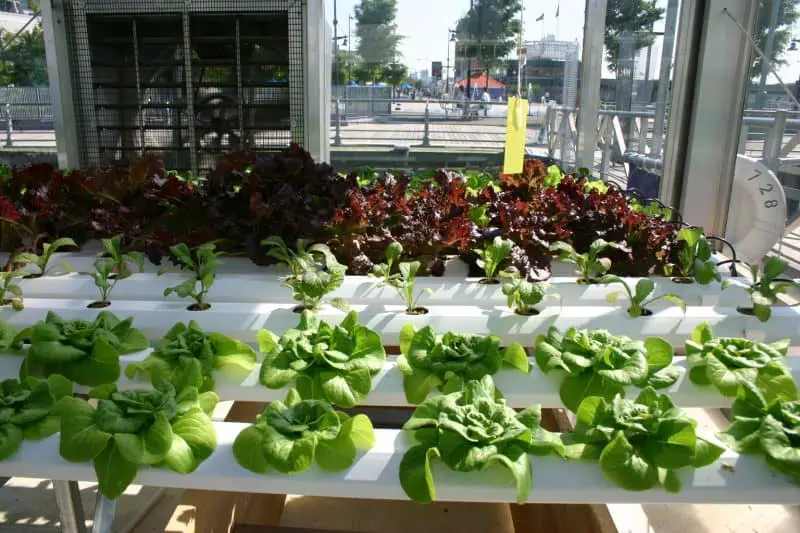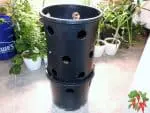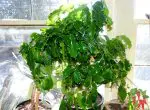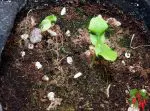This post contains affiliate links. If you buy something from one of our links we may earn a commission. Thanks
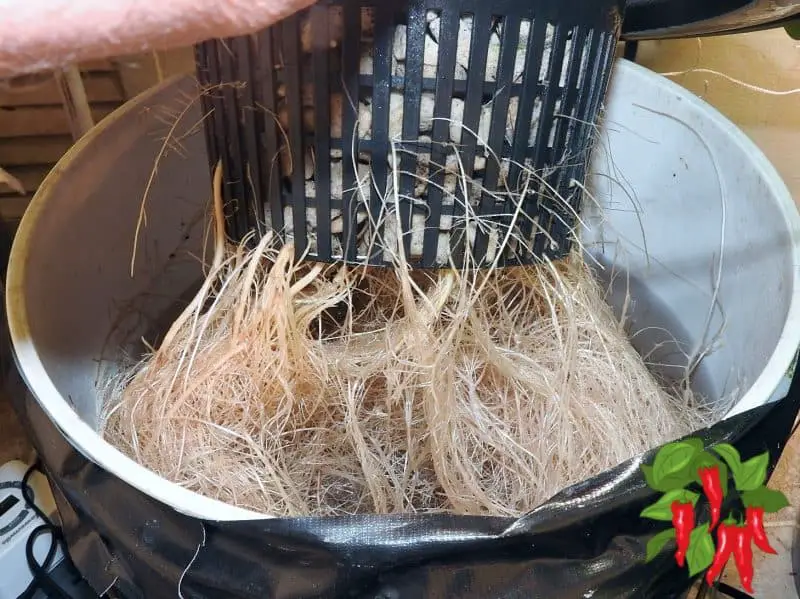
Is hydroponics better than soil? Did you know that there are different ways to garden? Some people garden in soil, while others use something called hydroponics.
Is hydroponics better than soil?” Discover a world where gardening takes a modern twist, nurturing plants in water
Which one is better? Let’s take a closer look at both methods and see which one comes out on top!
Hydroponics Vs Soil Key Takeaways:
- Container gardening is a traditional method where plants are grown in pots with soil.
- On the flip side, hydroponics is a soil-less gardening method where plants are nurtured in a nutrient-infused water solution.
- This modern method often leads to faster growth and fewer pests.
- It can be done indoors, making gardening possible year-round.
How Does Hydroponics Work?
Container gardening has always been a favorable option for those with limited outdoor space.
However, a new trend has emerged where soil is replaced with nutrient-rich water.
The question buzzing among gardening enthusiasts is, “is hydroponics better than soil?”
Let’s explore the two methods and unravel the advantages hydroponics brings to the modern-day gardener.
Hydroponics is a method of growing plants without soil. Instead, plants are grown with a solution of water and nutrients. This method can be used to grow plants indoors or outdoors.
There are many benefits to growing plants using hydroponics. One benefit is that hydroponics can be used to grow plants in areas where the soil is not suitable for growing plants.
For example, hydroponics can be used to grow plants in deserts or on rooftops.
Another benefit of hydroponics is that it is a very efficient way to grow plants. Plants grown using hydroponics require less water than plants grown in soil.
This is because the roots of plants grown in hydroponics are constantly fed with nutrients in their water. This means that the plants can take up water and nutrients more efficiently.
Finally, hydroponics is a great way to grow healthy plants. This is because hydroponics allows for a more controlled environment.
Temperature and humidity can be controlled more easily in a hydroponic system.
This means that plants are less likely to experience stress, which can lead to healthier growth.
Is Hydroponics Better Than Soil?
Ask any gardener and they’ll tell you that there’s nothing quite like the feeling of planting a seed in soil and watching it grow into a thriving plant.
But is soil really the best way to go? Some gardeners are turning to hydroponics as an alternative – and they’re finding that this method has some major advantages.
So, what is hydroponics, and why might it be a better option than traditional soil gardening? Keep reading to find out!
Growing Vegetables In Soil
Soil is a great growing medium for vegetables, but it has some major drawbacks.
First and foremost, soil can harbor pests and diseases that can harm your plants.
Second, soil requires a lot of maintenance- you have to water it, fertilize it, weed it and amend it regularly to keep it in good condition.
Third, soil doesn’t hold moisture very well so you have to water your plants frequently, which can be wasteful.
Finally, soil doesn’t always provide the right nutrients for certain types of plants.
Is Growing Vegetables With Hydroponics Better?
Hydroponics solves all of the above problems. With hydroponics, you don’t need to worry about pests or diseases because your plants are grown in an inert medium like rockwool, hydroton, or coco coir.
Soil is only one part of the plant’s environment and it’s not even the most important factor. In fact, soil can actually stunt a plant’s growth.
Hydroponics allows for more control over the nutrients that plants receive, which leads to healthier plants that are better able to resist pests and diseases.
Soil also may contain many harmful elements that can damage or kill plants, such as salts and heavy metals. Hydroponics eliminates these problems.
Finally, hydroponics is much more efficient than traditional agriculture methods. It takes up less space, requires less water, and produces higher yields in a shorter amount of time.
A Word About Using Coco Coir In Hydroponics
Coco coir may look like soil but it is actually considered a hydroponic medium. It has a fantastic water holding capacity while remaining highly oxygenated even when wet.
Coco coir may be perfect for you to transition from growing in soil to growing hydroponically.
Now if you want hydroponic results from coco you need to treat it differently from soil. You never want coco to dry out between waterings.
The best way to use coco is in a top feed drip system with multiple small feedings daily. If you use it this way you can get incredible hydroponic growth.
Another great thing about coco is you will only need half the pot size that you would in soil.
So if hydroponic gardening appeals to you but you can’t quite get your head around growing in clay pebbles growing in coco might be right up your alley.
The Benefits Of Hydroponics For Growing Vegetables
The benefits of hydroponics are many and varied. Hydroponics is a great way to garden because it uses significantly less water than traditional gardening, and the plants grow faster in a hydroponic system.
In addition, you can control the nutrients that the plants receive in a hydroponic system, which means that you can create an ideal environment for your plants to thrive.
Finally, hydroponics is perfect for people who don’t have access to soil or who live in an area with poor soil quality.
So, if you’re looking for a way to get into the gardening scene but don’t have much outdoor space, or you want to produce more food with less work and no soil-related diseases, hydroponics is definitely the way to go.
What Can Be Grown In Hydroponics?
Just about anything! Lettuce, tomatoes, cucumbers, peppers, and herbs all do well in hydroponic systems.
Flowering plants can also be grown hydroponically too. With hydroponics, the sky’s the limit when it comes to what you can grow
But hydroponics is not ideal for root and bulbs crops like onions and garlic. You probably won’t be growing hydroponic potatoes either.
However, generally, hydroponics is a great way to grow vegetables without soil.
This means that there’s no need for tilling or weeding, and hydroponics systems can be set up almost anywhere.
Plus, hydroponic gardening uses less water than traditional gardening methods.
When you water an outdoor garden you are not just watering the plants but much of the soil around them. But that extra water also helps weeds to grow.
My back still hurts from all the hours I was hunched over pulling weeds. No thanks! There are no weeds to pull with hydroponics.
Reasons That Hydroponic Gardening Is Better Than Soil
There are many reasons why hydroponics is better than soil for growing vegetables.
First, hydroponics systems can be designed to provide the perfect environment for plants.
Soil-based systems are more likely to fluctuate in temperature and moisture levels, which can stress plants and lead to reduced yields.
Second, hydroponics systems can be controlled more precisely than soil-based systems.
This means that hydroponic gardeners can optimize conditions for plant growth, such as nutrient levels and pH balance.
This results in healthier plants that are less susceptible to pests and diseases.
Third, hydroponics systems use less water than soil-based systems. Because hydroponic nutrient solutions are recirculated, there is very little water waste.
In contrast, soil-based systems often leach nutrients out of the growing medium, which can lead to water waste and groundwater pollution.
Fourth, hydroponics systems are less likely to harbor harmful bacteria and fungi than soil-based systems.
This is because hydroponic nutrients are basically sterile and free of organic matter.
Soil-based systems, on the other hand, provide an ideal environment for bacteria and fungi to thrive.
Finally, hydroponics gardening is a great way to produce fresh, nutritious vegetables all year round.
Because hydroponic systems can be set up indoors, gardeners can grow vegetables even in winter months when outdoor conditions are not favorable.
Hydroponics is a superior method for growing vegetables compared to soil.
With hydroponics, you can grow healthy plants that are less susceptible to pests and diseases, and you can grow them all year round.
So if you’re looking for a better way to grow vegetables, hydroponics is the way to go.
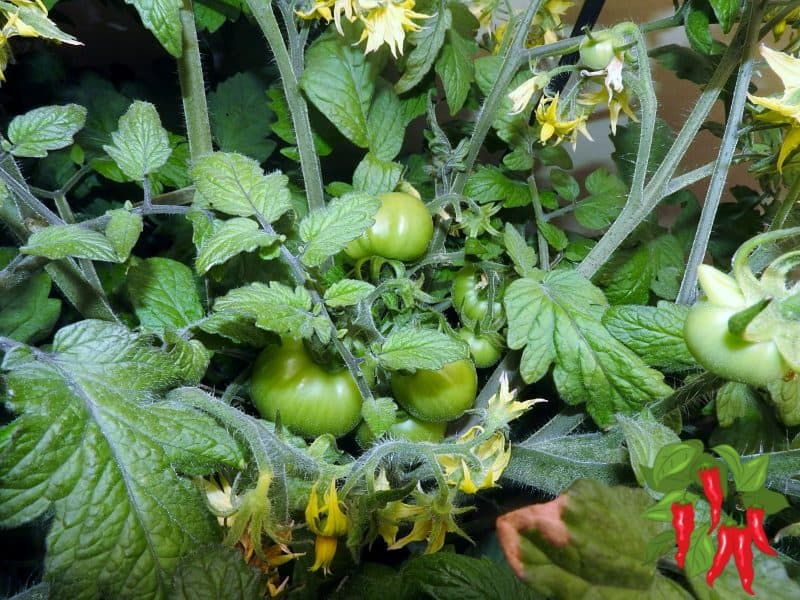
Is Hydroponic Growing Bad For The Environment?
Hydroponics is a type of agriculture where plants are grown in a soilless solution. This method has many benefits over traditional soil-based gardening, including less water and nutrient waste, faster growth rates, and fewer pest and disease problems.
One reason hydroponics is more efficient than soil-based gardening is that all of the nutrients are fed directly to the plants’ roots.
However, hydroponic growing may have some negative environmental impacts, such as the use of fertilizers made with fossil fuels.
But overall, hydroponics is a more sustainable and efficient way to grow plants, but it is not without its environmental impacts.
How Much Faster Is Hydroponics Than Soil?
Hydroponics is a growing method that uses mineral nutrient solutions in water, without soil.
This soilless method has several advantages over traditional growing in soil, including faster growth rates, smaller footprints, and less water and fertilizer usage.
Hydroponics also offers a higher degree of control over the growing environment, making it possible to optimize conditions for maximum growth and yield.
In my experience, hydroponic crops finish 7-14 days earlier than the same crops grown in soil.
Plants don’t waste their energy searching for food. Instead, they can focus on growing their crop.
Using balanced hydroponic nutrients, they also will not suffer from nutrient deficiencies that can slow and limit growth. This means bigger harvests.
For these reasons, hydroponics is often used by professional growers and hobbyists alike.
So, How Much Faster Is Hydroponics Than Soil?
The answer also depends on a number of factors, including the type of crop being grown, the hydroponic system being used, and the level of experience of the grower.
Generally, aeroponics and DWC produce crops faster than other growing systems.
However, in general, hydroponics can produce crops at a much faster rate than soil-based methods.
This is due to the fact that hydroponic systems provide plants with a steady supply of nutrients and water, which they can use immediately to support growth.
In contrast, soil-based growing relies on natural processes such as rainfall and decomposition to provide plants with the nutrients they need.
These processes are often unpredictable and can take days or weeks to deliver nutrients to plants.
With climate change, the weather has become much more unstable. Growing outdoors can result in floods from heavy rains or droughts from not enough rain.
But hydroponic systems can be designed to maximize plant growth by providing ideal growing conditions.
For example, hydroponic systems can be controlled to maintain a consistent temperature and humidity level, which can promote faster growth.
Soil-based systems, on the other hand, are subject to the weather and can experience wide swings in temperature and humidity.
Hydroponics offers a number of advantages over traditional soil-based growing, including faster growth rates, smaller footprints, and less water and fertilizer usage.
If you’re looking to produce crops at a faster rate, hydroponics may be the way to go.
Does Hydroponics Need Electricity?
Hydroponics systems can be designed to minimize or eliminate the need for electricity.
For example, many hydroponic systems use passive hydroponics, which relies on the natural convection of water to circulate nutrients.
The Kratky system is an example of a passive hydroponic system that does not rely on electricity. It works best for lettuce and other greens.
Thus the Kratky method eliminates the need for pumps and other powered equipment.
Other hydroponic systems may use solar power to operate pumps and other equipment.
So, while some hydroponic systems do require electricity, it is possible to design a system that does not need it.
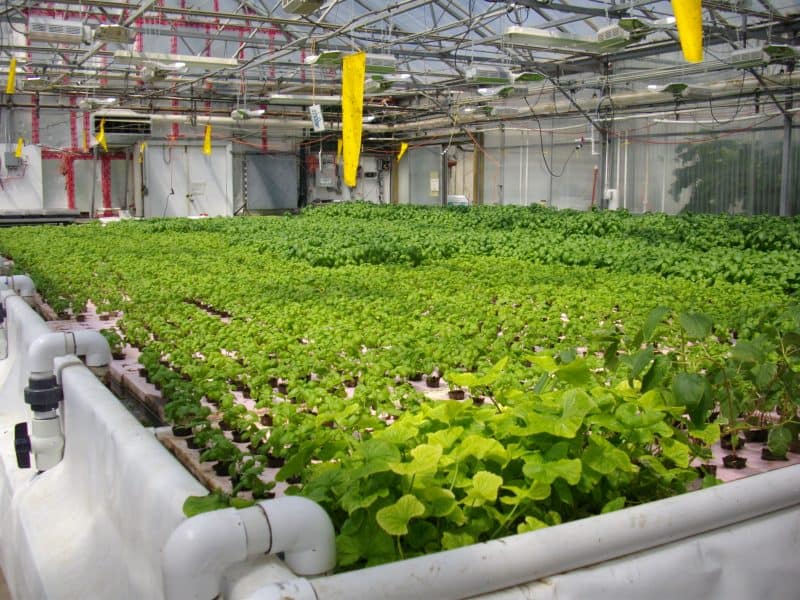
Does Hydroponics Use A Lot Of Water?
Hydroponics has a number of advantages over traditional soil-based gardening, including the fact that it uses less water.
Because hydroponics doesn’t rely on soil to provide nutrients to plants, hydroponic gardens can be set up with a closed-loop system that recycles water.
This means that hydroponic gardens use much less water overall than soil-based gardens.
Additionally, hydroponics allows gardeners to grow plants in places where traditional gardening would not be possible, such as in deserts or on rooftops.
The lack of need for soil also makes hydroponics easier to set up and maintain than traditional gardening.
Is An Air Pump Necessary For Hydroponics?
Many gardeners and farmers are turning to hydroponics as a way to overcome problems associated with traditional soil-based gardening, such as poor drainage, compaction, and soil-borne diseases.
One of the key components of a successful hydroponic system is an air pump. Air pumps provide the oxygen that roots need to grow and thrive. They also help circulate nutrients and prevent stagnation.
While it is possible to grow hydroponically without an air pump, doing so significantly reduces the chances of success.
One question that often comes up when starting a hydroponic garden is whether or not an air pump is necessary.
Air pumps are used to aerate the hydroponic solution and provide oxygen to the roots of the plants. While they are not required for all hydroponic systems, they can be beneficial in most cases.
If you are using a deep water culture system, also known as a DWC system, then an air pump is absolutely necessary.
In this type of system, the roots of the plants are submerged in a nutrient-rich solution, and oxygen is provided by air bubbles as they rise to the surface of the water.
If you are using a hydroponic system that does not use a DWC system, such as flood and drain or a drip irrigation system then an air pump may still be beneficial.
This is because these types of hydroponic systems often have less water and grow media that often sits in plastic pots which can lead to oxygen deprivation.
An air pump can help prevent this by aerating the hydroponic solution and irrigating your plants provides oxygen directly to the roots of these plants.
In general, air pumps are not required for all hydroponic systems. However, they can be beneficial in most cases.
Hydroponic Gardening Pros And Cons
Hydroponic farming has many advantages over traditional soil-based farming.
For example, hydroponic systems can be designed to be highly efficient, using less water and fewer resources than soil-based systems.
In addition, hydroponics allows for year-round crop production, regardless of weather conditions.
However, hydroponic farming also has some disadvantages.
One major disadvantage is the high initial cost of setting up a hydroponic system. hydroponic systems can be quite complex and require specialized equipment and knowledge to set up and maintain.
In addition, hydroponic systems can be more labor-intensive than soil-based systems, as they require more frequent monitoring and care.
Overall, hydroponic farming has both advantages and disadvantages.
While the initial cost of setting up a hydroponic system can be high, the long-term benefits of hydroponics, such as increased efficiency and year-round production, make hydroponics an attractive option for many vegetable growers.
What Is The Most Profitable Hydroponic Crop To Grow?
There is no easy answer to this question, as the most profitable hydroponic crop to grow will vary depending on a number of factors.
Factors such as the specific hydroponic system being used, the climate, and weather conditions in the growing area, the skill of the grower, and the market conditions for the crop being grown all influence profit levels.
However, some hydroponic crops that are generally considered to be profitable include tomatoes, cucumbers, peppers, and leafy greens.
Do Hydroponic Tomatoes Taste Better?
There are many reasons to choose hydroponics over soil for growing vegetables. One of the most compelling reasons is that hydroponic tomatoes simply taste better.
This is because hydroponic tomatoes are grown in a controlled environment. They receive the perfect amount of nutrients and water, and they are not subject to pests or other environmental concerns.
There are many benefits to growing hydroponic tomatoes. They are easier to grow than traditional soil-grown tomatoes, and they require less water and fertilizer. Hydroponic tomatoes also have fewer pests and diseases.
But do hydroponic tomatoes taste better? The jury is still out on this one. Some people say that hydroponic tomatoes have a more intense flavor, while others find them to be bland. Ultimately, it comes down to personal preference.
If you grow hydroponic tomatoes I can guarantee they will taste better than the ones in the supermarket.
They are picked green for shipping purposes. Then they are gassed with ethylene to turn them red.
So soil vs hydroponic is personal preference but hydroponic vs supermarket tomatoes is no contest.
Growing Hydroponic Tomatoes
If you want to try growing hydroponic tomatoes yourself, there are a few things you need to know.
First, you’ll need to purchase a hydroponic system. There are many different types of hydroponic systems available on the market, so do some research to find the one that’s right for you.
Check out this article about growing DWC tomatoes
https://www.indoorvegetablegrower.com/dwc-tomatoes/
Hydroponic Systems Find What’s Right For You
Here are a few different hydroponic systems you might want to try out:
Flood and drain systems are easy to set up and can work really well. They require more room than some other systems. You can easily move plants around though.
Top feed drip systems are very versatile and can be used with hydroton, rockwool, and even coco coir.
Setting up the drip lines can be complicated and they can get in the way when working on your plants and they are harder to move.
DWC or deep water culture is easy to set up and works best for larger plants like tomatoes or peppers. I use a 5-gallon bubble bucket system for my plants.
The Kratky Method is very similar to DWC but it is passive with no airstones. Probably the easiest system to set up but it has its limitations.
Once you have your hydroponic system set up, you’ll need to choose the right type of tomato plant.
There are many different varieties of hydroponic tomato plants available, so again, do some research to find the one that’s right for you.
Determinate tomatoes stay short and bear most of their fruit at once. They are a short-lived plant though.
Indeterminate tomatoes are tall and vine-like. They require training too. But they are long-lived and bear continuously. If healthy they can live for years.
Finally, it’s important to remember that hydroponic tomatoes require slightly different care than traditional tomatoes.
For example, they will need to be trained, watered, and fertilized more frequently.
But with a little patience and attention, you can grow delicious hydroponic tomatoes that will rival any soil-grown variety.
Here is an article about setting up bubble buckets and growing hydroponic tomatoes:
https://www.indoorvegetablegrower.com/how-grow-tomatoes-dwc-bubble-buckets/
Does Hydroponics Yield More Than Soil?
Many people believe that hydroponics yields more vegetables than traditional soil gardening because the roots of the plants are able to access more nutrients and oxygen in the water.
Additionally, hydroponics can be done indoors, so you are not limited by the weather or soil conditions.
However, hydroponics does require more setup and maintenance than soil gardening.
So it is important to do your research before getting started. But if you are looking for a high-yield gardening method, hydroponics may be the way to go.
Hydroponics vs Soil FAQs
Embarking on a hydroponic gardening journey triggers a cascade of questions.
It’s a different yet exciting venture that unveils a new gardening horizon.
Our FAQ section endeavors to address those queries, paving a smooth path for your hydroponic gardening adventure.
Q. How does the cost of setting up hydroponic systems compare to traditional soil gardening?
A. Initially, hydroponic systems might require a higher investment due to the need for specialized equipment. However, over time, they can be more cost-effective as they use less water and nutrients and often yield more produce.
Q. Can hydroponics be done outdoors?
A. Yes, hydroponics can be done outdoors. However, indoor hydroponics is more common as it allows for a controlled environment, free from unpredictable weather conditions which could hinder plant growth.
Q. What types of plants are best suited for hydroponic systems?
A. Leafy greens, herbs, and vegetables like tomatoes, cucumbers, and peppers thrive in hydroponic systems. However, root and bulb crops like onions and garlic, or large fruiting vegetables might not be ideal for hydroponic setups.
Q. Is hydroponic gardening suitable for beginners?
A. Hydroponic gardening can be beginner-friendly, especially with certain systems like the Deep Water Culture (DWC) or the Nutrient Film Technique (NFT) which are relatively simple to set up and manage.
It might require a bit of learning initially, but with a little guidance, beginners can achieve successful harvests.
This friendly dive into hydroponics versus soil gardening unveils the ease and efficiency hydroponics offer.
Whether you’re a seasoned gardener or a green thumb in the making, understanding these two methods opens up new possibilities in the gardening realm.
Final Thoughts On Is Hydroponics Better Than Soil?
Hydroponics is a great way to grow healthy plants. This is because hydroponics allows for a more controlled environment.
For example, temperature and humidity can be controlled more easily in a hydroponic system.
This means that plants are less likely to experience stress, which can lead to healthier growth.
Additionally, hydroponics can be used to grow plants in areas where soil is not suitable for growing plants.
For example, hydroponics can be used to grow plants in deserts or on rooftops.
Finally, hydroponics is a very efficient way to grow plants. Plants grown using hydroponics require less water than plants grown in soil.
This is because the roots of plants grown in hydroponics are either constantly immersed in water or fed a nutrient solution at regular intervals with a timer.
This means that the plants can take up water and nutrients more efficiently.
Is hydroponics better than soil? I think it is. Once you try it I think you will not go back to growing in soil.
Here is some more information on hydroponics https://en.wikipedia.org/wiki/Hydroponics

